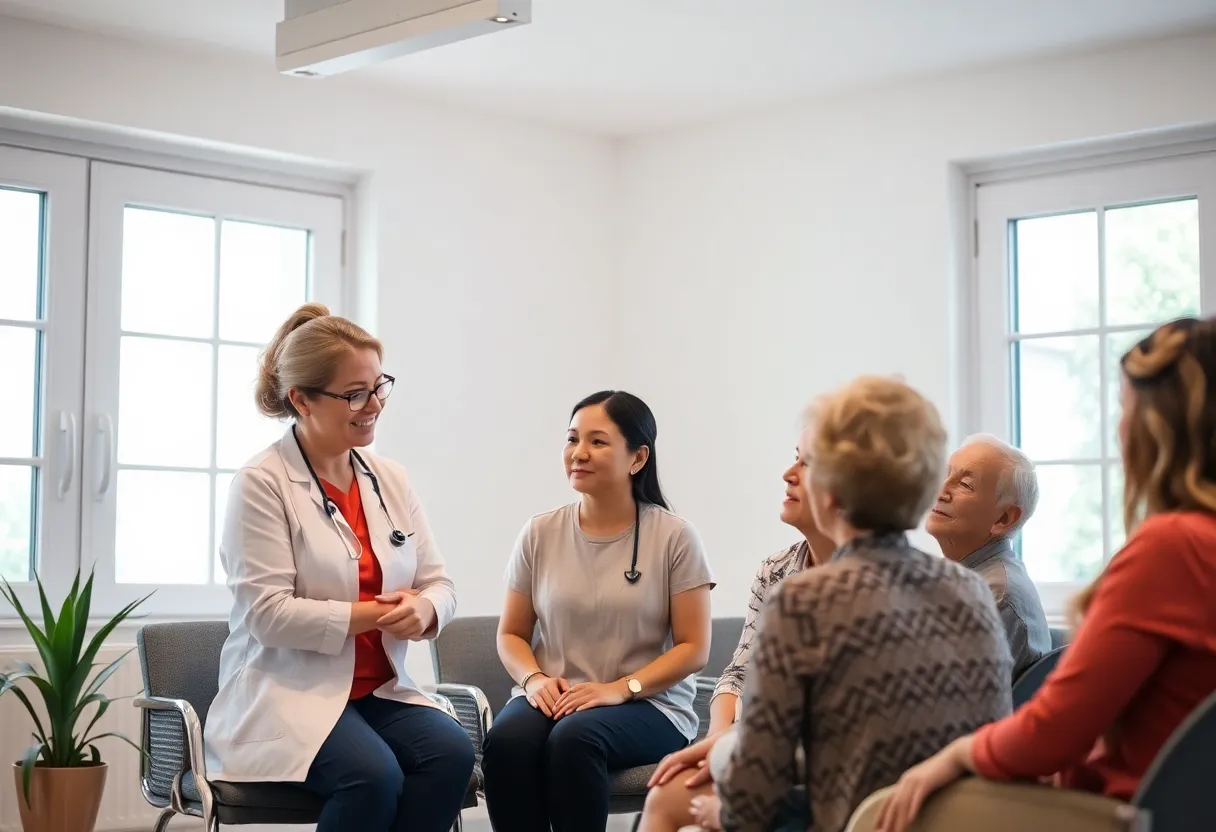

Bridging the gap in mental health support for individuals with skin conditions.
Want to target the right audience? Sponsor our site and choose your specific industry to connect with a relevant audience.
Prominent brand mentions across targeted, industry-focused articles
High-visibility placements that speak directly to an engaged local audience
Guaranteed coverage that maximizes exposure and reinforces your brand presence
Interested in seeing what sponsored content looks like on our platform?
May’s Roofing & Contracting
Forwal Construction
NSC Clips
Real Internet Sales
Suited
Florida4Golf
Click the button below to sponsor our articles:
Sponsor Our ArticlesSkin conditions affect approximately one-third of the global population, often leading to significant mental health challenges. Stigma around visible skin issues exacerbates feelings of anxiety, depression, and social isolation. Recent research highlights the importance of integrating mental health support into dermatological care and developing tailored resources. Digital platforms offer valuable assistance, especially in regions with limited access to mental health care. By addressing the unique needs of individuals with skin conditions, we can improve their well-being and encourage a supportive community.
Do you have a skin condition, or know someone who does? You’re not alone! Skin conditions impact about one-third of the world’s population. From pesky rashes to noticeable scarring and changes in pigmentation, these skin issues can really take a toll, not just on appearance but also on mental health.
Imagine dealing with a frustrating skin condition while also feeling the weight of the world on your shoulders. That’s what many people face daily. The physical symptoms like rashes and scars are just part of the story. The emotional strain often includes things like stress, anxiety, and even depression. Sadly, for some, these feelings can spiral into devastating thoughts of self-harm or worse.
One of the biggest hurdles for individuals with skin conditions is stigma. Society often associates visible issues with personal failures or lack of hygiene, leading to societal rejection and isolation. This stigma can be particularly harsh, resulting in a wide array of mental health issues that further complicate their lives. Thankfully, there are bright minds and caring advocates out there, working tirelessly to bring attention to these issues and to develop much-needed mental health resources.
A recent landscape analysis sheds light on the landscape of mental health resources tailored specifically for those with skin conditions. It turns out that there are 26 patient advocacy websites offering a variety of digital tools including online interventions and peer support forums. These platforms allow individuals to seek help and find community support in a space where they often feel misunderstood.
For those who find it difficult to openly discuss their struggles, especially in cultures where emotional sharing is more reserved, digital resources can be a game changer. The anonymity offered by online platforms makes it easier for individuals to seek guidance without fear of judgement. High-resource regions, like Europe and North America, have access to fantastic digital health options such as mobile apps and telehealth counseling, paving a way for more robust support systems.
However, not everyone has equal access to these resources. In places like Africa and rural regions of the Western Pacific, there are often community-based interventions that can be more effective due to shortages of mental health professionals. These interventions might involve local figures, such as trusted religious leaders or traditional healers, who can offer support and guidance while respecting the cultural norms of the community.
One crucial takeaway from this research is the pressing need to integrate mental health support into dermatological care. Studies have shown that when mental health is prioritized alongside physical care, patient outcomes improve significantly. Healthcare professionals and advocacy organizations are called to action to ramp up their efforts in ensuring that mental wellness is just as emphasized as physical health.
What does this mean for the future? Experts recommend developing region-specific mental health initiatives that respect local cultural norms while being accessible to everyone. There’s also the need to evaluate existing programs for their effectiveness and adapt them to be more inclusive.
At the end of the day, the mental health of individuals dealing with skin conditions is crucial and deserves our collective attention. By fostering understanding, overcoming stigma, and increasing access to tailored resources, we can make a real difference. As more research is conducted to broaden the reach and effectiveness of these interventions, we can look forward to a world where no one feels alone in their skin struggle.
Shelby Township Man Faces Charges for Alleged Attempted Kidnapping of Two Girls
News Summary Navigating the challenges of multiple myeloma treatment is complex, requiring robust support systems…
News Summary March is recognized as Kidney Cancer Awareness Month, a time to reflect on…
News Summary Debashish Acharya is leading the transformation of HR through AI and automation at…
News Summary Aiken County is providing essential disaster recovery assistance for residents affected by Hurricane…
News Summary The social work case management software market is forecasted to grow from $10.93…
News Summary Denisa Burt has been appointed as Arlington's new Community Resource and Homeless Prevention…